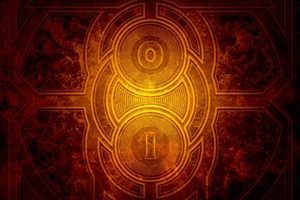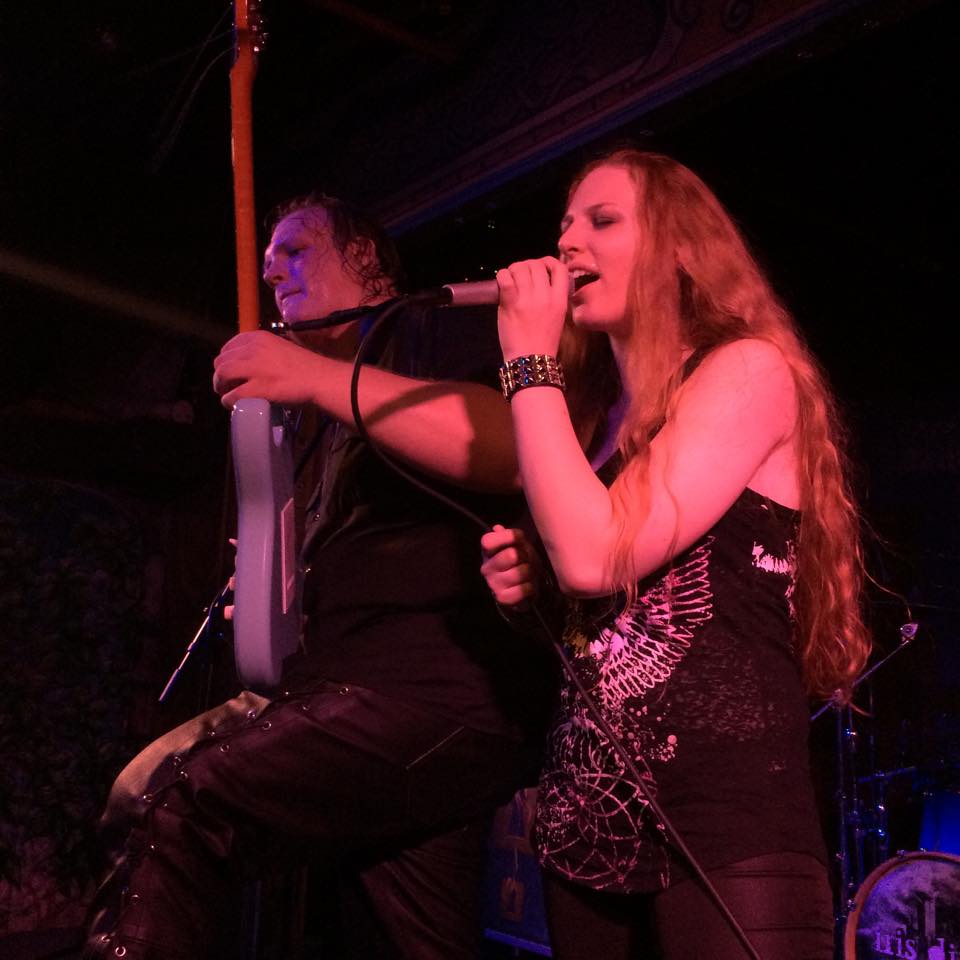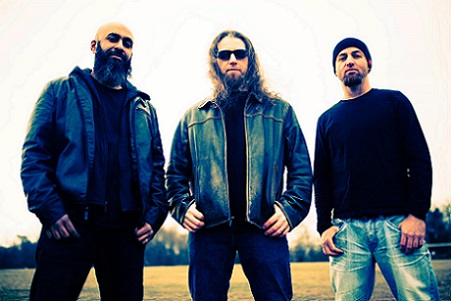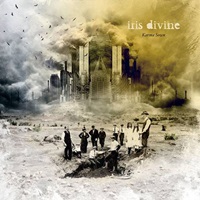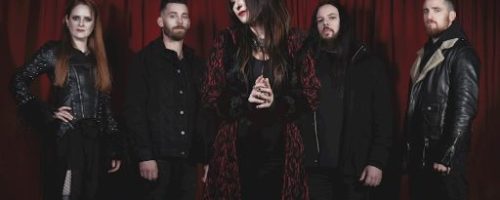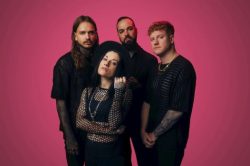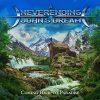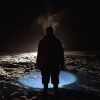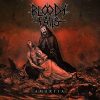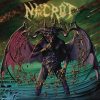Iris Divine – Cutting Through the Static
Friday, 15th September 2017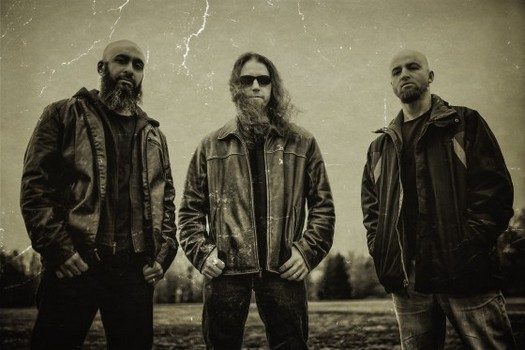
Melding together a myriad of progressive metal and heavy/modern/alternative rock influences that encapsulate decades of music, Iris Divine aim to offer the listener a special blend of sounds rarely heard before in the genre. While others may forsake down-tuned measures of groove-laden aspects, this trio embrace them – piecing together their material in an alluring framework that lends itself to deeper appreciation with each successive exposure. The latest album The Static and the Noise further pushes the boundaries of their established style – balancing out the yin and yang between tricky time signature changes and advanced chord progressions with undeniable musical hooks and potent vocal melodies.
Be it the rhythmic, almost Leprous/Haken stunted words during parts of “Like Glass”, or the grunge-ish, Alice in Chains meets Rush melding during the first video “Taking Back the Fall” – Iris Divine prove that progressive metal isn’t just about technique, advanced prowess, or always setting the meter to ‘amazement’. That it’s perfectly acceptable to give the audience cohesive focus and great songs – hopefully ones that will stand up longer than the second the last note is played.
Reaching out to guitarist/vocalist Navid Rashid one weekend morning, we dig deeper into his outlook on songwriting, his love for pop music and how that applies to Iris Divine in terms of said songwriting, as well as the challenges of advancing to the next level as a band. It’s always entertaining to bounce around in conversation from Tears for Fears and Orphaned Land to The Cars, Dream Theater, and Iron Maiden – of which Navid also pays tribute to in his work with Eyes of the Nile.
Dead Rhetoric: The Static and the Noise is the third Iris Divine album – do you feel more comfortable as a trio knowing where you want to take the songwriting and recording, and where do you see the major advances or differences in the three years since Karma Sown?
Navid Rashid: That’s a good question. Let me start by saying in my mind I consider this our second album. The first one to me (Convergence) was technically a double EP. It wasn’t really intended to be a full-length album, and it doesn’t have the coherence of a full-length album. To me that’s like the two EP’s of the previous lineup, released concurrently. I think about having two true albums, Karma Sown and this one.
I think there’s been some development from Karma Sown to this one. The writing process for this one was challenging because half-way or a third of the way through the writing of The Static and The Noise, (drummer) Kris (Combs) ended up relocating. That changed our writing dynamic a lot. I will write up a lot of the material, riffs and chord progressions, the skeletons of the songs are done. Then I will bring the material to the other guys and we will work on them together in the practice room. But when he moved away, it became a bit of a different process- files over email and that whole thing. The last two-thirds of this (album) was really challenging, I was doing a lot of this at home and really trying to flesh out as much of the song as possible without as much of that being in the room together (vibe). It made me dig a lot deeper and think about the vision of the songs.
If we are comparing this one to Karma Sown, it’s more diverse. It definitely takes more chances, and I think we are definitely more comfortable in our own skin. The first time around we had a (certain) style that we were going for, and I think we established it, and we felt a little more content to move outside the confines a little more. It’s still anchored in a similar sound, the modern, down-tuned progressive metal thing- but we added a lot more flavors this time around and it took a lot more chances. This one feels more like a roller-coaster to me, that’s probably the biggest change.
As far as the individual performances, the biggest difference to me is in the bass playing. I think Brian Dobbs did a great job with the bass lines- he took lots of chances and there are great melodies. I was very happy with the progression from the last one- there are different key changes, we are mixing it up.
Dead Rhetoric: Working with a seasoned producer like Drew Mazurek – known for his work with Byzantine and Nothingface – what is he able to bring to the table to get the best out of you, and what does he make you think about that you might not otherwise?
Rashid: Drew with us functioned in the capacity of engineer and mixer, as well as mastering. That was sort of the angle that he approached our material with. With him a lot of it comes down to getting sounds. The main reason why we end up going back to Drew is because of the way he approaches the sound of drums. He gets the best drum sound out of anyone I’ve ever heard. We are really particular about the drum sound, in modern metal in my opinion, the drums sound sampled, robotic, and homogenous. My favorite era of recorded music happened in the 1990’s, once they got out of the reverb happiness from the 1980’s and Pro-Tools came in- you look at a lot of the records from the 1990’s and they have these big, natural, huge drum sounds. I’m really attracted to that- and Drew is really good at getting those big, natural drum sounds.
And both albums, people are asking us what we did to get those drum sounds, as they both sound really good. There isn’t a whole lot of sampling, there isn’t a lot of sound replacement- that’s pretty much the way he got the drums to sound. From an engineering standpoint, that’s really a strength of his. In terms of the mixing, he brings an ear for layers. When you are mixing an Iris Divine album, even though there is only three of us, the density of the sound at certain points and making sure that you are working atmospheric keys and stuff, there is a lot to keep track of to the mix. Doing it right, it’s either too separated or too mushed together where you don’t have enough separation. The balance between the two where you still feel it’s a cohesive record and you can pick out a lot of the details- and I think he does a really nice job with that.
He didn’t really function as much in the producer role- the guys were generous enough to give me the option of taking a producer’s credit for the album, which I did. This one even more than the last one, I had a vision as the songwriting was developing. Because that last two-thirds of the writing, a lot of it was just myself. I was thinking about how I wanted the album to flow and feel, as a cohesive whole- and that influences how you approach the mix. You can emphasize certain elements, give certain parts a certain type of feel, pull back certain things- so all the things have to integrate and work together. Drew and I make a really good team, and I think between the two of us we made the vision come to life.
Dead Rhetoric: Your previous album tackled the theme of conflict within yourself, relationships, and others in many of the lyrics. What topics or themes came forward for The Static and the Noise – and would you say the words are easier or difficult to pull together than the musical side?
Rashid: I have sort of a love/hate relationship with lyric writing. Historically, on Karma Sown I wrote all the lyrics- on this new one I wrote all the lyrics but one song that Kris did the lyrics for. There are times where the words just flow and I have an idea of where I want to go, and other times that takes a long time to pull together. Even though we spend a lot of time on the musical details, I really want to make sure that the lyrics hold up as well. I feel really good about the lyrics on this album. If someone were to sit down and read them, I really took a lot of time to try and paint a picture, to try to get an idea across, to try and avoid the use of a lot of lyrical clichés that you seem to see a lot in music.
Like you mentioned, the last album had a lot to do with conflict. With this one, the lyrical topics are as diverse as the music. We’ve got a couple of songs with a little socio-political commentary, we have a couple songs dealing with internal struggles and personal development, there is one song that is literally about falling in love with music and this world of rock and roll that we get into, that it gives you a voice that you may not have ever had before.
I was thinking about the common thread… and a lot of people have been asking me about the title The Static and the Noise. I like it because it sounds cool, but when I think about what it means, from the literal perspective there’s a lot of noise on the album- hopefully a lot of good noise. From the figurative and metaphorical perspective, I think in order to reach a point of clarity, it’s necessary for us to work through various obstacles, distractions, and barriers that are competing for our attention. When you think about any sort of signal, like a radio or something, you increase the signal and decrease the noise- so you have to kind of cut your way through the noise and the static to get through to what you are looking for. So whether you are talking about it on a broader social level, personal level, spiritual level, or the artistic level- the whole point is to find a place of clarity, and work your way through the static and the noise so to speak.
Dead Rhetoric: Where do you feel your vocals fit in the Iris Divine landscape? Your range certainly conveys more of a melodic/ alternative texture, which gives the music another added dimension in my opinion for connection…
Rashid: Again, the commonly levied criticism about certain kinds of progressive music, is that there isn’t enough focus on the songwriting and that everyone is just interested in playing technical parts on their instruments. I don’t agree with this at all, and I think that’s a bunch of nonsense. It’s lazy when people listen to Dream Theater and think it’s just a bunch of notes. That’s couldn’t be further from the truth- the great bands of this genre, Dream Theater, Fates Warning, Porcupine Tree- there’s a real commitment to writing actual songs and the vocals are a huge part of that. In general, rock/metal – they are all variations of popular music. We understand that popular music is vocally driven. Even if you are listening to Lamb of God, where the vocals aren’t that melodic at all- vocals are still critically important. And there’s a side of me that loves pop music- so vocals are critically important. When you are writing a song, that is naturally where the listener’s ears are going to go towards. I think human beings are wired for melody – that’s the reason why you can take a bunch of metal fans, and it doesn’t matter if they are into death, black, whatever genre isn’t necessarily as melodic- and you put on an Iron Maiden song, and everyone loves it.
As a songwriter, I am very conscious to make sure the vocals are supported, with melodies. The masters of the genre, like Rush and Dream Theater, they make space for the vocals- and there are times for the instruments to do crazy stuff but there are times where the instrumentation is dialed down to support the vocals. On this album, I tried to make sure that there are spaces where the vocals had these melodic hooks, and choruses, things you can latch on to. It’s easy sometimes with this music to get a bit lost with what’s happening with all the changes- sometimes the vocals are a good way to anchor things. A long answer to a short question, but a really critical component that needs to emphasized is (vocals).
Dead Rhetoric: How do you feel your mini-tours went across various parts of the United States – what tools of the trade and experiences did you take away that makes Iris Divine that much stronger as a unit? Did it feel great to take fresh songs like “Catalyst” and test fan response in that environment?
Rashid: One of our goals as a band is to hopefully do some more extensive touring at some point. Having said that, the two mini-tours were fantastic on (many) levels. Number one- it’s just a different feeling to be able to play shows multiple nights in a row- where you are in a certain headspace to be able to focus totally on the music. That already builds a little bit of momentum- the first night you are working out the kinks and by night number three you are feeling more like a well-oiled machine. I think that’s always going to be something you learn from and grow from. Dealing with different venues, different sounds and technical situations that come up, different monitor situations- there’s a level of adaptability that comes into play when you are dealing with things like that.
From that standpoint, it was a really good experience. We can’t claim to be a heavily touring band, if you are doing one-off shows though, you need the experience of doing three to four nights in a row, it’s a qualitatively different experience and so much fun. In terms of rolling out new songs, I’m one of those people that gets a little bit restless if I’m playing the same material over and over again. Being able to bust out some new songs is really great, it’s a challenge for us and keeps us on our toes. It’s a great way to test out what you’ve written to see how the dynamics translate to the audience in a live context. I think about that a lot when I’m writing- not that every song has to be the best live song, because certain songs take you on a journey in the studio – but there are certain parts where you are thinking about how the audience will respond, like when the groove hits. When you see it come to life in the live show it’s very validating.
Pages: 1 2











